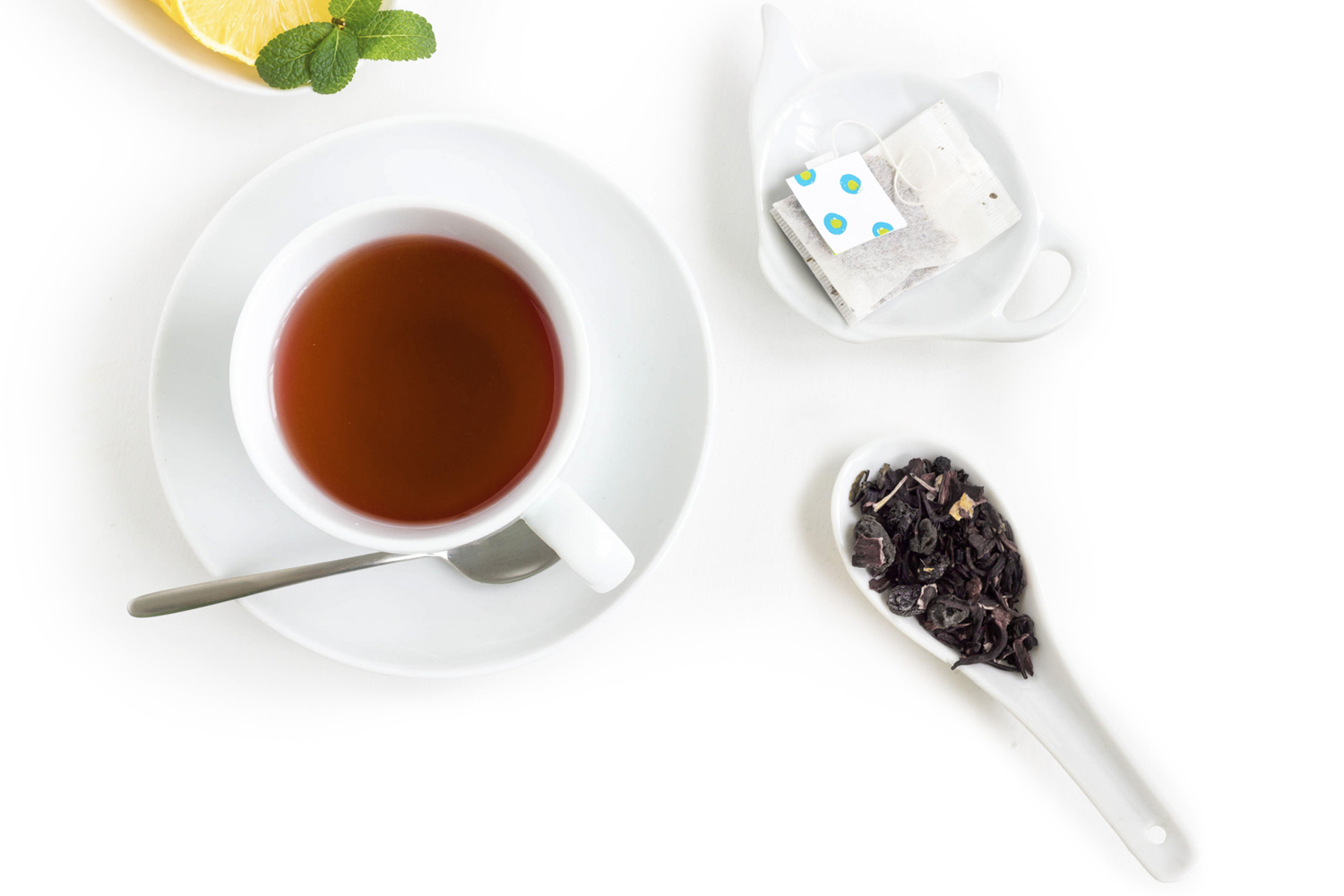THE WORLD’S MOST POPULAR BEVERAGE is steeped in health benefits, and here’s another to add to the list. Drinking tea daily was associated with decreased mortality in people diagnosed with colorectal cancer, according to a study published April 2023 in the American Journal of Clinical Nutrition.
Using data from two large cohorts that tracked diet, lifestyle and health outcomes over several decades, researchers reviewed food frequency questionnaires from 2,552 participants with stage I to III colorectal cancer. They looked at reported consumption of flavonoids, which are natural plant compounds with antioxidant properties—specifically a subclass known as flavan-3-ols. They found a higher intake of flavan-3-ols after a cancer diagnosis was associated with lower death rates compared with diets that had fewer flavan-3-ols. Further analysis also linked drinking tea, a strong source of flavan-3-ols, to a lower risk of death compared with never drinking tea.
“Drinking one [8-ounce] cup of tea every day was associated with a 14% reduction in colorectal cancer mortality and a 10% reduction in all-cause mortality compared to non-drinkers. The risk was further reduced in those who consumed more than one cup per day,” says Mingyang Song, a study author and a clinical epidemiologist and nutrition researcher at the Harvard T.H. Chan School of Public Health in Boston.
A cup of black tea has about half the caffeine of a similar serving of coffee, but the stimulant can add up with multiple cups of tea throughout the day. In excess, tea drinking can cause nervousness, gastrointestinal symptoms or sleep disruption, so people may want to practice moderation, according to Hannah Dalpiaz, senior clinical dietitian with Dana-Farber Cancer Institute in Boston.
“This is the first study showing tea may benefit colorectal cancer survivors, but more data is needed,” Song says. He notes the questionnaires used to gather participants’ dietary information did not distinguish between black and green tea. Black tea is the most consumed tea in the American diet, but green tea has slightly higher amounts of flavonoids.
“Studies suggest flavonoids have various health and anti-cancer benefits,” Song says. “[Lab and animal] studies show flavan-3-ols, in particular, may slow colon cancer progression by reducing pro-tumor inflammatory responses in the human gut.”
Follow these tips to get the most health benefits from your tea.
Hannah Dalpiaz, senior clinical dietitian with Dana-Farber Cancer Institute in Boston, provides these tips for getting more health benefits from tea:
- For the most flavan-3-ols, choose green or black teas over herbal tea beverages.
- Be aware that powdered and bottled teas have lower flavonoid concentrations, and many are high in sugar.
- Add milk sparingly. When mixed with tea, proteins in dairy milk may reduce flavonoid absorption.
- Enjoy your tea hot or cold. The health benefits remain whether served heated or chilled.
Cancer prevention guidelines advise limiting sugary beverages, so tea can be a healthier drink option than sugar-sweetened sodas, according to Hannah Dalpiaz, senior clinical dietitian with Dana-Farber Cancer Institute in Boston, who was not involved in the study. She also recommends a diet based on colorful plant foods. “It may be less about individual compounds [in tea and other plant foods], but rather about how all these compounds interact together within the body,” she says.
Cancer Today magazine is free to cancer patients, survivors and caregivers who live in the U.S. Subscribe here to receive four issues per year.





